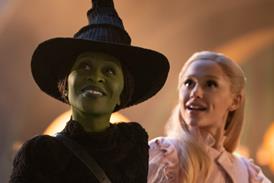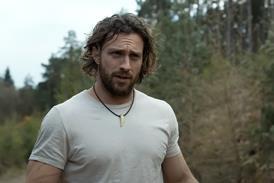Dir: Kevin Macdonald. UK-US. 2012. 144mins
Bob Marley was a global industry before he died at 36 in 1981. Now that ever-growing industry has its inspiring official cinematic story, a must-see event for the faithful, which should bring a new army of followers.
Marley’s fans all over the world will flock to Kevin Macdonald’s long thorough bio-doc. The singer’s life was scrutinised extensively in books, but the film should now multiply that audience, and stimulate music sales, which mushroomed since 1981 everywhere from Japan to Africa.
The official doc’s access to family and music should also preclude any competing Marley–ologies for a while, making it a one-stop reference point. Get ready for t-shirt mania.
The doc tracks a musical journey with revealing details and context from Marley’s native Jamaica. Marley’s rural birthplace was anything but exotic. Small towns lacked electricity and people made their own music. His white father – photographed, unsmiling, on horseback - disappeared. Bob wasn’t Norval Marley’s only child with local women, but his mixed race set him apart.
Family and friends lead us through the early days, to the Trenchtown slums, and to Wilmington Delaware, where Marley’s mother made hotel beds and young Bob also worked. Fortunately for world culture, the American dream wasn’t enough for this reggae artist.
Moving dutifully through Marley’s musical roots, the film samples reggae’s early days, as a gritty sound emerges from local musicians and inspired producers. The early Marley wasn’t commercial enough to justify meddling from the industry.
Those roots would clash with Chris Blackwell of Island Records (an exec-producer of the doc), who organized early grueling tours in the UK and US and guided the group toward a sound that would fill large venues, and make money. Along the way, they lost Pete Tosh, who calls the executive Chris White-well.
We’re told that the best time to have seen Marley was in the early 1970’s, when he played night after night to crowds of 500 people. Yet what we now know as the throbbing Marley sound shed that rawness in the studio and stadiums.
In the 144 minutes, music is measured out carefully as testimony follows the young star through marriage, love affairs, kids (11 that we know of with seven mothers), political violence in Jamaica, exile and cancer. Photos of the cancer-stricken star under treatment in icy Switzerland are poignant.
Macdonald understood Marley’s charisma that fed his legend. Almost killed in political fighting in 1976, Marley returned to Jamaica in 1978 for a concert (that friends warned him not to perform) where warring leaders climbed onstage and shook hands. It’s a rare moment that shows what music can achieve, and also points to the limits of celebrity politics. (Fighting in Jamaica continued.)
Shrouded in smoke, Bob Marley had a magician’s feel for an audience. Yet he wasn’t an orator, or even an articulate man, certainly not much of a father, sometimes obtuse - no surprise for a rock star. In love with the daughter of Omar Bongo of Gabon (one of many), he missed the crucial fact that her father, for whom he performed, was a dictator – and that his manager overcharged the Gabon government and pocketed the difference. Others tell the stories of success, women, betrayal by advisers, and the cancer (melanoma) that he left untreated in early stages.
Macdonald’s visual story deploys a widely-sourced jumble of archival imagery and footage from stage and studio – even part of Marley and Stevie Wonder’s rousing rendition of I Shot the Sheriff.
Sound is a parallel eclectic jumble, especially from the early days, in the marathon doc that may be too long for film critics but an irresistible groove for the crowd that comes to see their hero.
An official project, with cooperation from Marley’s family and Blackwell, the doc avoids solemnity and caution – like Martin Scorsese’s recent tribute to George Harrison. If secrets remain untold, someone else will reveal them.
Production companies: Shangri-La Entertainment, Tuff Gong Pictures, Cowboy Films
International Sales: Fortissimo Films
Producers: Steve Bing, Charles Steel
Executive Producers: Ziggy Marley, Chris Blackwell
Co-Producer: Zach Schwartz
Associate Producers: Neville “Bunny Wailer” Livington C.D., Suzette Newman
Cinematography: Alwin Kuchler, Mike Eley
Editor: Dan Glendenning






















No comments yet